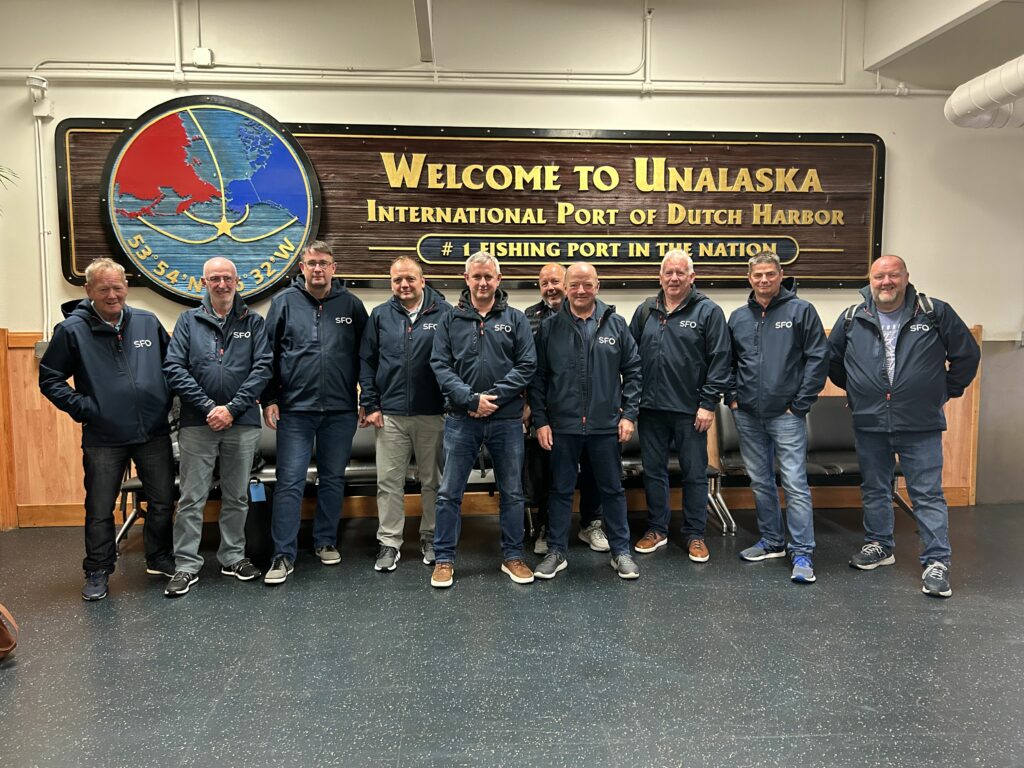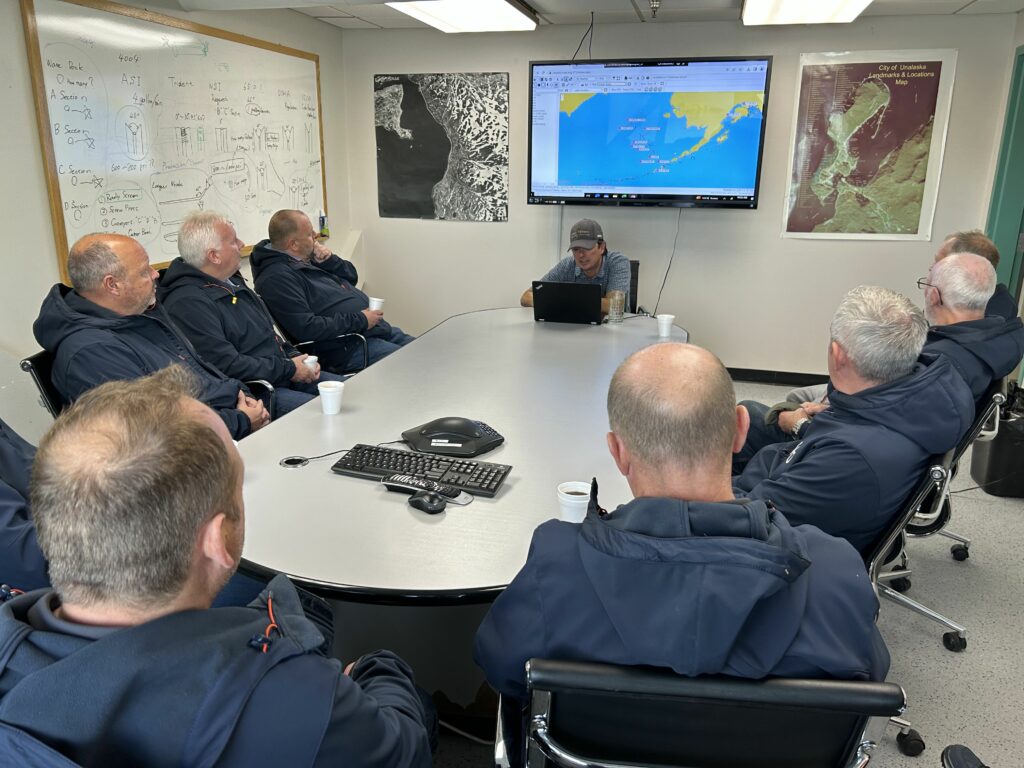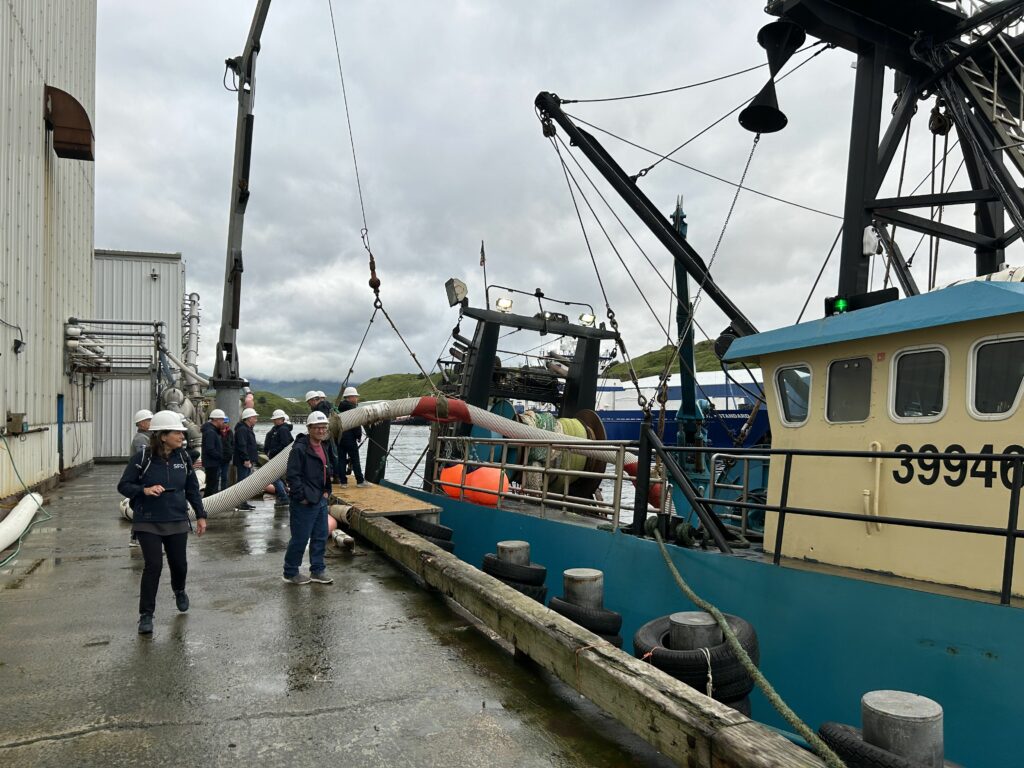

Funding from the Company’s Fisheries Charitable Trust has enabled a delegation from the Scottish Fishermen’s Organisation (SFO) to visit the Pacific North-West area of the United States to learn how fisheries managers there have improved sustainability by reducing unwanted catches, visiting Washington and Alaska in August.

The visit was planned to coincide with the Alaska pollock “B” season, which takes place from early June to the end of October, depending on quota availability. The fishery is widely regarded as one of the best managed in the world and uses a range of innovative management tools to limit by-catch of species such as salmon and halibut.
Real-time reporting tools used in North-West Pacific fisheries inspired the development of BATmap (Bycatch Avoidance Tool with mapping), a bespoke mobile phone app that enables participating skippers to share information on the location of unwanted catches in real time. The system has been in operation on the west coast of Scotland since 2022 and has been used to report unwanted catches of cod (currently on a bycatch quota) and spurdog (prohibited until recently).
Scotland is currently undertaking a co-management approach to developing its future catch policy and to assist in this process the SFO is keen to draw on experiences of management in fisheries that have developed innovative approaches to sustainability. The aim of the trip was to witness first-hand the co-management approach that has been adopted in recent years in several important fisheries in the North-West Pacific, particularly in relation to unwanted catch reduction.
The delegation spent two days in Seattle and met various industry and management organisations associated with US North-West Pacific fisheries. A number of representatives from The National Marine Fisheries Service (NMFS), a United States federal agency within the US Department of Commerce’s National Oceanic and Atmospheric Administration, also participated in the discussions.
The delegation also met Sea State Inc in Seattle to learn how real-time by-catch avoidance works in North-West Pacific fisheries, particularly the Alaska pollock fishery.

The second half of the exchange comprised a visit to Dutch Harbor, Alaska, to experience the Alaska pollock fishery in operation and to meet boat captains, processors and managers to discuss the practical implementation of real-time reporting. The delegation visited two pollock processing plants in Dutch Harbor: Alyeska Seafoods Inc and Westwards Seafoods. Members learned about the various products including frozen fillet and surimi blocks that are processed from catches landed directly into the plants. The delegation also learned how by-catch was accounted for and dealt with in the processing plants.
The delegation met three captains during the exchange: Tony Norg of the 34m Bering Rose, Calyton Smith of the 40m Progress and Tim Thomas of the 102m catcher-processor Northern Jaeger.
Each captain spoke of the move in recent years to sharing data and the importance data plays in the management of the fishery. While data sharing may have been a challenging concept when first introduced, the majority of operators now see the value of using data in near real-time to help reduce unwanted catches. This sentiment was echoed in meetings with Tim Cusick (fleet manager for Westward Fishing Company) and Colleen Anderson (coop manager for Unalaska Fleet Cooperative) who further noted that full transparency of by-catch levels across the fleet provides an added incentive to keep within the predefined limits.

The trip was deemed an overwhelming success and the SFO intends to use the knowledge gained to inform discussions with stakeholders and the Scottish Government as it looks to develop an effective catch policy for Scotland in the coming months. It will also help inform the further development of BATmap (https://info.batmap.co.uk/).
John Anderson, Chief Executive of the SFO, said: “We are extremely grateful to our hosts in Seattle and Dutch harbour for what was an illuminating and highly valuable learning journey. It is clear that the American North-West Pacific fisheries are light years ahead of us both in terms of their co-management approach and in the use of technology and real-time data to manage their fishing operations in mixed fisheries. Their overall management approach is something we can aspire to and gives us much food for thought as we contemplate the Future of Fisheries Management in Scotland and embark on the development of Fisheries Management Plans (FMPs).”